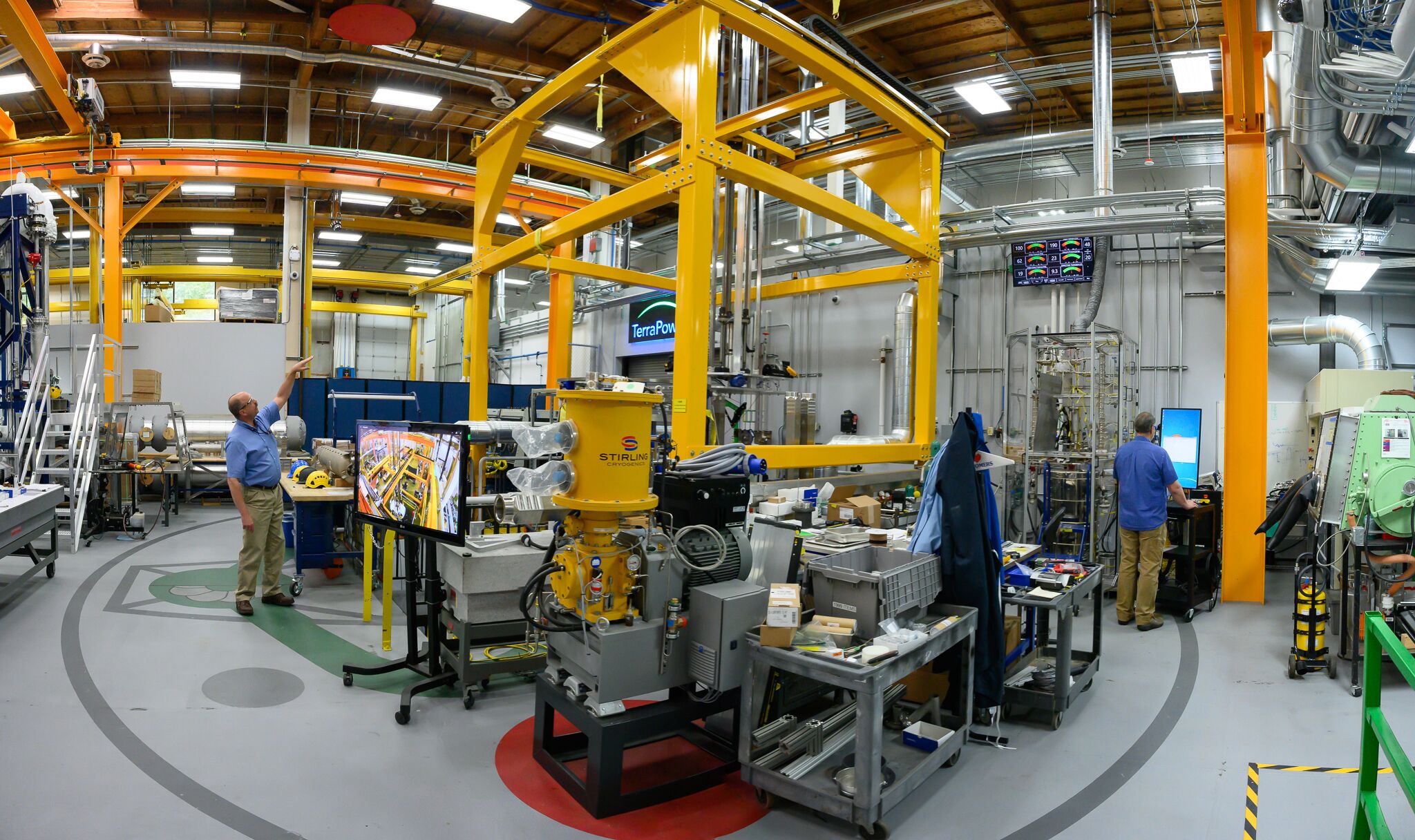In a pioneering move towards advancing nuclear technology and addressing climate change, the United Arab Emirates (UAE) has partnered with TerraPower LLC, the advanced nuclear reactor company founded by Bill Gates. The collaboration, formalized through a memorandum of understanding, aims to explore the potential development of advanced reactors both within the UAE and on a global scale. This strategic alliance aligns with the UAE’s commitment to expanding its nuclear energy capacity and coincides with international efforts highlighted at the COP28 climate conference in Dubai to triple nuclear deployment this decade.
The Significance of Advanced Reactors
The agreement signifies a joint venture into the realm of advanced nuclear reactors, a transformative approach to nuclear energy that promises smaller, more efficient, and dynamic plants. Unlike traditional nuclear power plants, advanced reactors are envisioned as vital complements to intermittent power sources like wind and solar, providing a consistent and reliable energy supply.
Clean Electrons and Molecules Vision
During the signing ceremony, Mohamed Al Hammadi, CEO of the UAE’s state-owned nuclear company ENEC, emphasized the pursuit of a future that revolves around “clean electrons and molecules” facilitated by advanced reactors. This vision underscores a commitment to sustainable and clean energy production that aligns with global decarbonization targets.
Exploring Applications and Possibilities
The memorandum outlines plans to explore diverse applications for advanced nuclear reactors. These include storing power on the grid, providing the energy necessary for hydrogen production, and contributing to the decarbonization of key industries such as coal, steel, and aluminum plants. The collaboration between the UAE and TerraPower seeks to unlock the full potential of advanced reactor technology.
TerraPower’s Natrium Reactor Project
TerraPower is actively engaged in a demonstration project for its advanced Natrium reactor in Wyoming, USA. With an anticipated online date in 2030, the Natrium reactor project serves as a beacon for the viability and benefits of advanced reactor technology. The collaboration with the UAE is expected to leverage insights from TerraPower’s ongoing initiatives.
Challenges and Considerations
One challenge highlighted in the collaboration is the reliance on a specific fuel called high assay low enriched uranium (HALEU), with Russia being the primary producer. The geopolitical considerations around HALEU supply have been underscored by delays in TerraPower’s Wyoming project. However, the company expresses confidence that the United States will be capable of domestically producing the fuel in the coming decade.
Global Decarbonization Targets and the Road Ahead
The partnership between the UAE and TerraPower reflects a shared commitment to advancing nuclear technologies as a cornerstone of global efforts to combat climate change. As the world strives to achieve ambitious decarbonization targets, the exploration of cleaner and more efficient energy solutions, such as advanced nuclear reactors, becomes imperative.
The collaboration between the UAE and TerraPower marks a significant stride in the pursuit of innovative and sustainable energy solutions. By delving into advanced nuclear reactor technology, the partnership aims not only to meet the energy demands of the present but also to pave the way for a decarbonized and resilient future. As nations join forces to tackle climate change, initiatives like these underscore the importance of international collaboration and forward-thinking solutions in shaping a sustainable energy landscape.













[url=https://avana.cfd/]buy dapoxetine australia[/url]
[url=http://hydroxychloroquine.guru/]best price for plaquenil[/url]
[url=http://vardenafil.cfd/]levitra 20 mg tablet[/url]
бесплатная юридическая консультация по наследству по телефону [url=konsultaciya-yurista-kpc.ru]konsultaciya-yurista-kpc.ru[/url].
Медкнижка официально: Оформление, продление без медицинского осмотра
где сделать медкнижку официально недорого [url=https://www.medknizhki-cena.ru/]https://www.medknizhki-cena.ru/[/url].
I simply could not go away your web site prior to suggesting that I really enjoyed the standard info a person supply on your guests Is going to be back incessantly to investigate crosscheck new posts
Thank you for the auspicious writeup It in fact was a amusement account it Look advanced to more added agreeable from you By the way how could we communicate
Hello there! I know this is somewhat off topic but I was wondering which blog platform are you using for this website?
I’m getting tired of WordPress because I’ve had problems with hackers and
I’m looking at alternatives for another platform. I would be fantastic if you could point
me in the direction of a good platform.
I do agree with all of the ideas you’ve introduced for your post.
They’re very convincing and will definitely work.
Still, the posts are too short for newbies. May you please prolong them a bit from subsequent time?
Thank you for the post.
I have read some excellent stuff here. Definitely worth bookmarking for revisiting.
I surprise how much effort you set to create such a fantastic informative website.